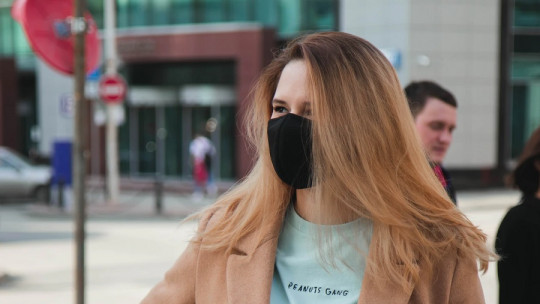In a very short time, the coronavirus crisis has transformed the functioning of societies and, consequently, also that of the people who make up that society.
Therefore, in this article you will find a summary of the psychological implications of the pandemic distinguishing between its effects on personal life and those that mainly affect the professional sphere.
The psychological effects of the COVID-19 crisis on private life and work
Here we will review the main types of psychological problems that can be facilitated by the pandemic context.
Effects on a personal level
The psychological effects of the COVID-19 crisis on private life are the most varied, but most can be classified within the following categories.
1. Discomfort due to social isolation
It seems that the segment of the population that has suffered the most from the emotional impact of the pandemic are young adults; More problems with unhappiness and depressive symptoms have emerged among this age group, which possibly has to do with the way restrictions have interfered with your social life (especially intense and diverse at this stage of adulthood).
However, the tendency towards a lifestyle more inclined towards social isolation is capable of emotionally affecting all types of profiles. If we add to this that loneliness is statistically associated with the adoption of unhealthy habits and the appearance of depressive symptoms in the medium and long term, the implications this has on the mental health of the population are worrying.
2. Ideological polarization and tension
In crisis situations such as the one triggered by the COVID-19 pandemic, social polarization often worsens. Therefore, it is not surprising that a certain level of tension appears derived from disagreements about what should be done about the virus, and about the position that should be adopted in the dilemma between prioritizing individualistic values or prioritizing collective values.
There are even cases such as those of the Swedish epidemiologist Jonas F. Ludvigsson, who was forced to leave his job and his participation in debates about COVID-19 due to the avalanche of criticism and forms of harassment suffered as a result of the rejection that many people felt for the results of their research on the coronavirus. This feeling of social pressure means that something as simple as giving an opinion on the management of the pandemic or even claiming one’s own interests is seen as a possible source of anxiety.
3. Anxiety due to economic instability
When we feel more vulnerable, we are more likely to develop a high state of anxiety. If this remains high for long periods, psychological alterations also appear that harm us emotionally.
4. Fear for one’s own physical integrity and that of loved ones
The fear of getting infected or contagion can last for months, which takes a toll on one’s mental health. and contributes to stress and anxiety continuing to lead to problems through a chain effect: concentration problems, lack of sleep, irritability, etc.
5. Ease of falling into self-abandonment
The mixture of anxiety and loss of social life leads many people to abandon hygiene and correct eating habits: the incentives to have a good image and stay in shape decrease and the need to alleviate discomfort through binge eating takes priority. , leisure habits that can be carried out passively and without effort, etc.
Professional level effects
Regarding the field of work and professional careers, the following psychological effects are worth highlighting.
1. Uncertainty about the future of work
In addition to the fear of losing one’s source of income, there is uncertainty about what to do to avoid finding oneself in a situation of financial vulnerability. This can result in psychological rumination. : intrusive thoughts about what worries us or about that decision that we must make and that we postpone over and over again.
2. Problems concentrating
It is very difficult to focus on the here and now if in the back of our mind we notice a multitude of reasons to be worried. Because of this, work performance decreases and new problems appear and accumulate.
3. Appearance of a more tense work environment
Contexts of economic crises favor the appearance of work climates in which hyper-competitiveness and the fear of being left with nothing in the short or medium term prevail which in turn predisposes conflicts to arise between workers or partners.
Are you looking for psychological assistance services?
If you want to have the professional support of a team of psychologists, contact us.
In UPAD Psychology and Coaching We offer help both with emotional problems related to private life and personal relationships, as well as with very psychologically demanding professional projects: preparation for competitive examinations, establishment of work routines, improvement of work or sports performance, etc. In addition, we work both through face-to-face sessions in our center located in Madrid and through the online therapy modality by video call.









